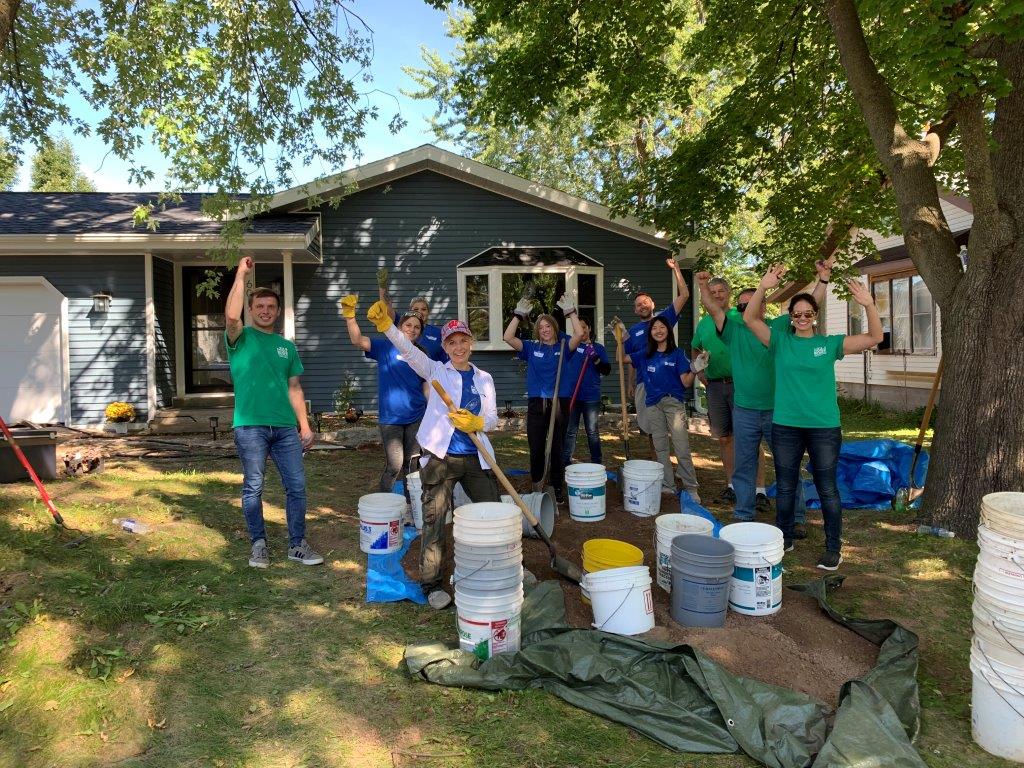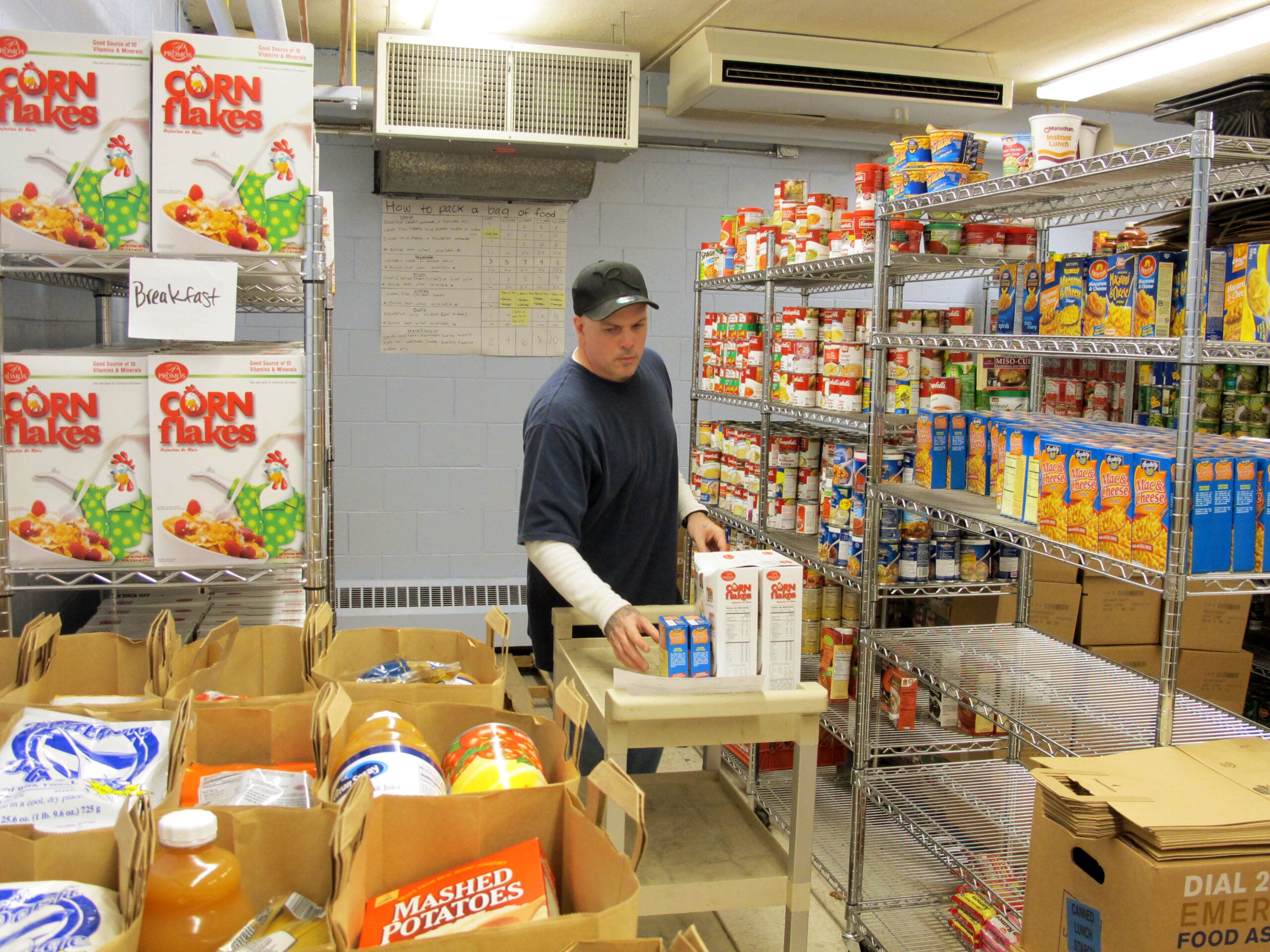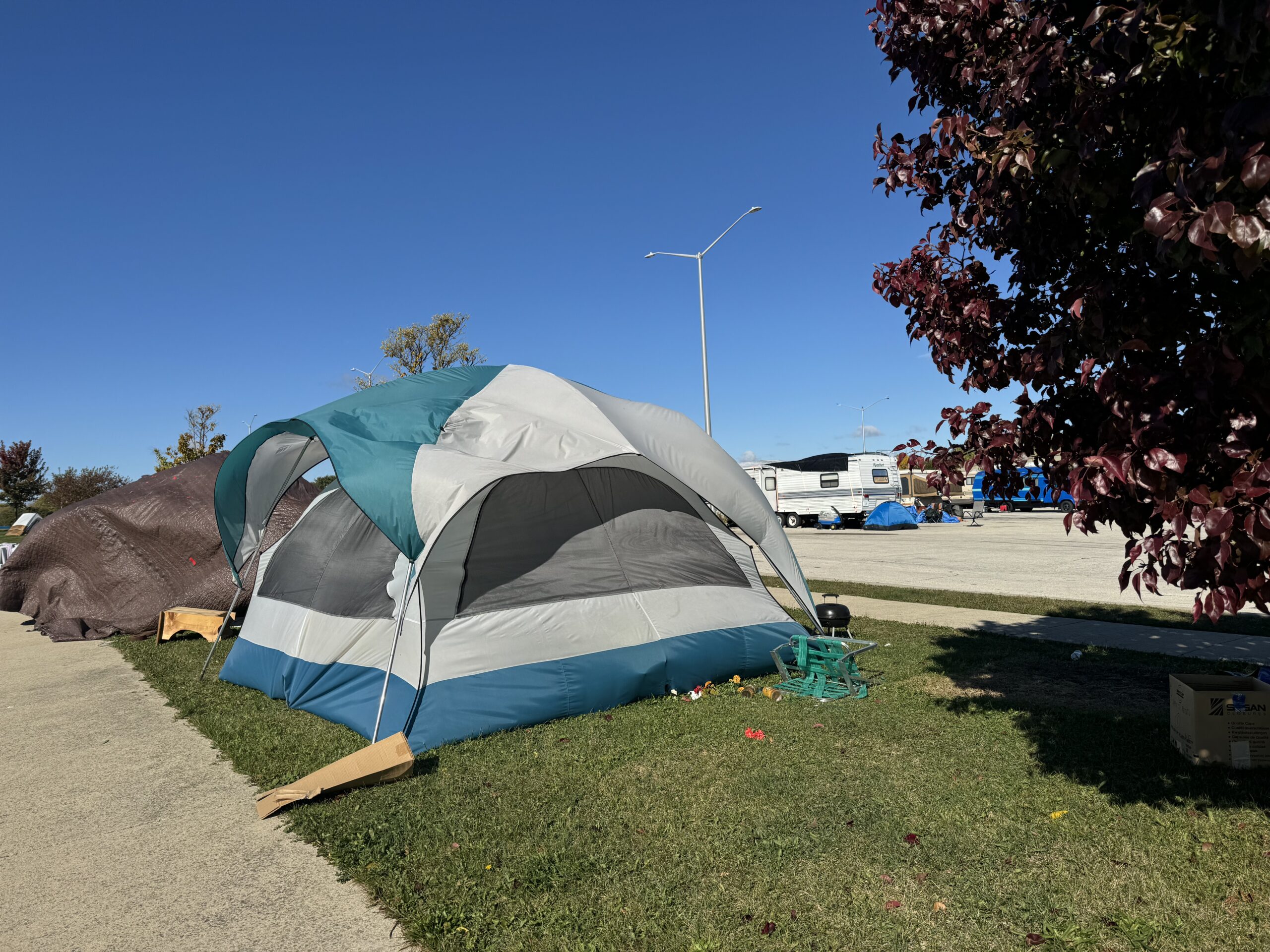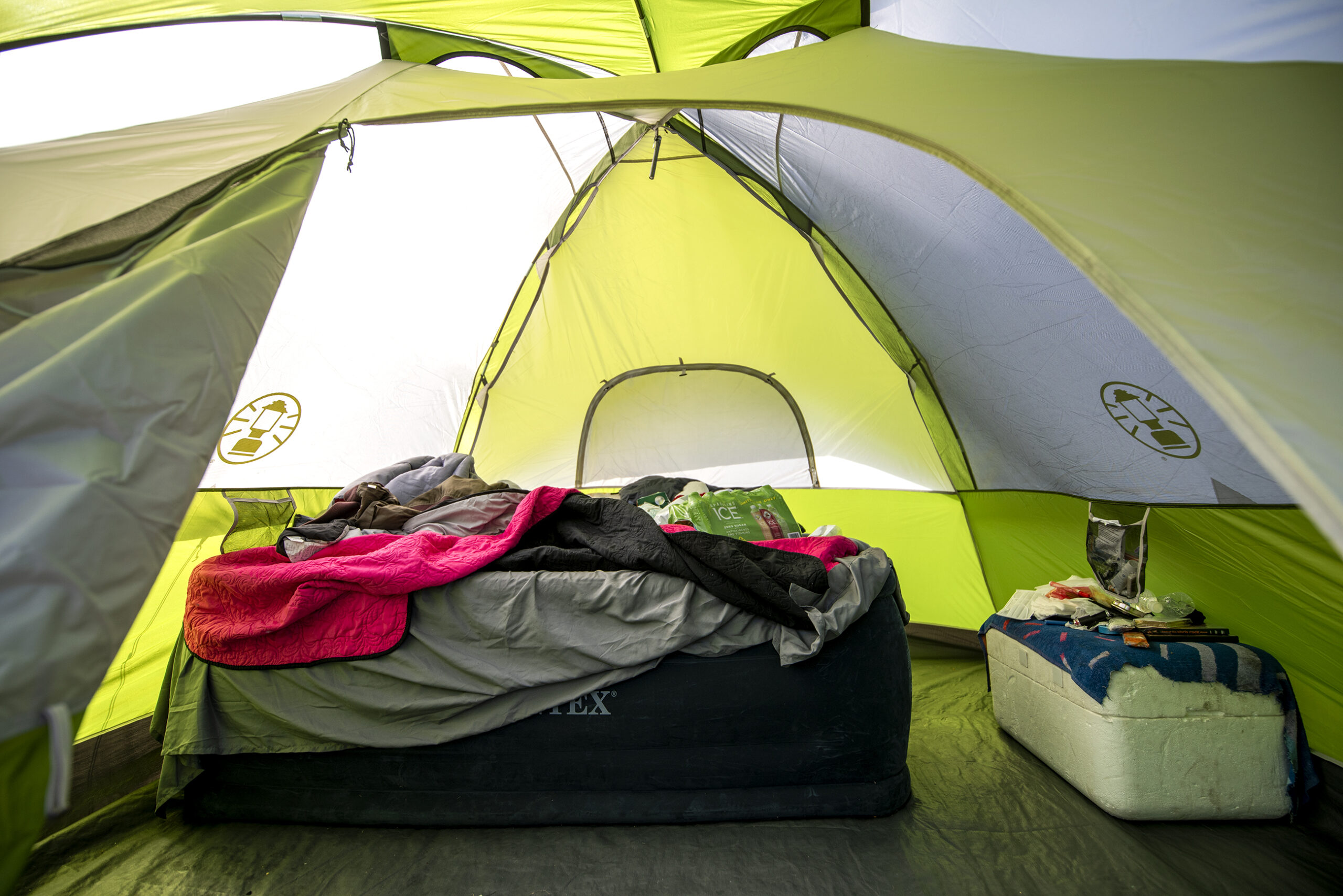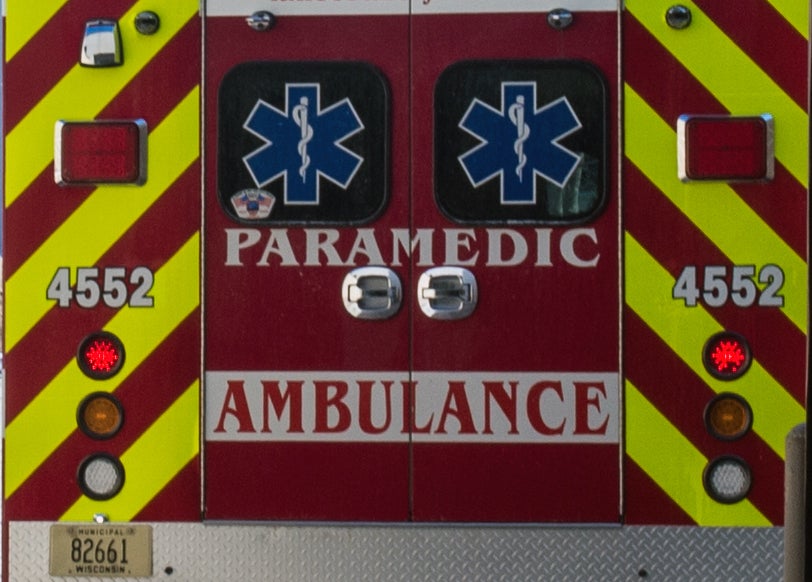Since launching its Rock the Block program in 2015, the Greater Fox Cities Area Habitat for Humanity has worked with homeowners and volunteers to help repair hundreds of homes in more than half a dozen communities.
Through the program, homeowners can access interest-free, deferred loans and help from volunteers to make external repairs — from patching leaky roofs to replacing outdoor railings.
Just last month, the organization completed about 30 projects in New London, and it’s heading to Kaukauna this spring. More than 75 percent of Rock the Block participants say the program has helped increase neighborhood pride, according to Habitat.
News with a little more humanity
WPR’s “Wisconsin Today” newsletter keeps you connected to the state you love without feeling overwhelmed. No paywall. No agenda. No corporate filter.
It might be having another impact as well, according to data from the city of Menasha Police Department.
Habitat has hosted four Rock the Block events in Menasha, and data from law enforcement shows they may have had an impact on reducing crime. Police calls have continued to drop since Rock the Block initially came to the area, said Police Chief Tim Styka.
“Every police department likes to say they have community programs and how they’re trying to reach out, but this is one that really puts the proof in the pudding because we can’t be out there on a daily basis in every single neighborhood to the level that people think. We just clearly don’t have the staffing ourselves or in any police department,” he said. “So, it’s how do you create those relationships?”
While calls to report crimes have gone down since Rock the Block came to town, police have seen more calls about unusual activity as neighbors have started looking out for each other, Styka said.
“Since that program went into effect, that area has created a pretty strong community group. That group this summer was doing lemonade stands and getting people out talking to each other, and the neighbors know each other now in that area, where they clearly didn’t before,” he said.
It’s impossible to say whether Rock the Block was wholly responsible for these changes, Styka cautioned. But the numbers are compelling. Between 2015 and 2017, recorded property damage declined by more than 40 percent, while calls to police for drugs and domestic disturbances fell by 58 percent and 75 percent respectively, according to data from the department.
The Menasha Police Department began tracking this information before the COVID-19 pandemic, during which time rates for most crimes fell dramatically. However, shootings increased across the country. While discussing Green Bay’s uptick in gun violence, former Police Chief Andrew Smith said law enforcement planned to work with the city’s redevelopment and public works departments to make improvements in areas where private properties have fallen into disrepair.
Rock the Block started as a way to engage entire communities in Habitat’s mission, said Sarah Wylie, director of strategic partnerships for the organization. Other cities have similar programs, including Des Moines, Iowa, which helped inspire the Fox Valley initiative.
Sometimes the organization is approached by neighborhoods that want to take part, and it seeks out areas with older housing stock, often working with municipalities to select communities that would benefit most, Wylie said. Homeowners don’t need to repay the loans until they sell or move, and volunteers can learn home repair skills, she said.
According to Habitat, more than half of residents said they’ve seen improvements to their neighborhood after Rock the Block. But the value goes beyond making homes safer and more livable, Wylie said.
“I think (homeowners) are just genuinely touched by the fact that people want to help. Their neighbors care. It’s neighbors helping neighbors at its core, and I think that speaks volumes to people,” she said.
Wisconsin Public Radio, © Copyright 2025, Board of Regents of the University of Wisconsin System and Wisconsin Educational Communications Board.

